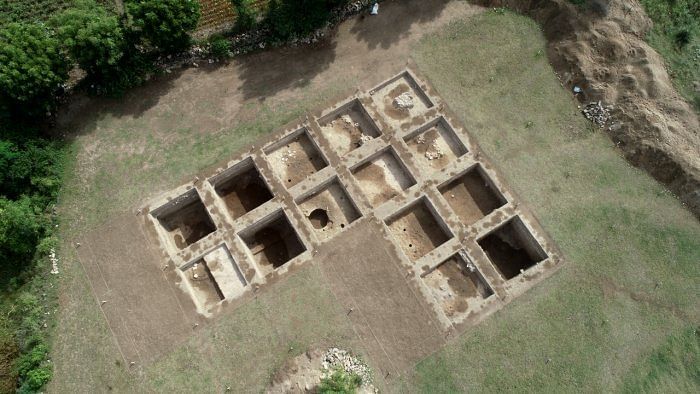
Tamil Nadu State Department of Archaeology (TNSDA) will soon resume excavations in four existing locations, including Keeladi widely believed to be over 2,600 years old, and launch digging in four new places in the state. The permission to conduct archaeological excavation in eight locations was granted by the Central Advisory Board for Archaeology (CABA) earlier this week based on a proposal by the state government.
Excavations will resume in Keeladi and its cluster sites of Agaram, Konthagai, and Manallur, in Sivaganga district, Vembakottai in Virudhunagar district, Thulukarpatti in neighbouring Thoothukudi district, and Gangaikondacholapuram, a town built by the famed Chola king Rajendra-I, in Ariyalur district.
The fresh locations where excavations will begin this year are Kilnamandi in the Tiruvannamalai district, Porpanaikottai (Pudukkottai), Boothinatham (Dharmapuri), and Pattaraiperumbudur (Tiruvallur). Seperately, the Archaeological Survey of India (ASI) will conduct excavations in Adichanallur in Thoothukudi and Vedakkupattu in Kanchipuram.
“The proposal was approved by the Union Government. The state government will decide on the date of the launch of the excavations shortly. The Chief Minister is expected to make an announcement on this,” a source told DH.
The excavations are likely to be launched in February-end or early March and will go on till September 2023. With this, archaeological excavations in Keeladi will enter the ninth phase, while it will be third phase in Gangaikondacholapuram, and second phase in Vembakottai, and Thulukarpatti.
The cultural deposit at Pattaraiperumbudur found in 2016 can be divided into the stone age period, iron age period and early historical period, the TNSDA said.
The state is also planning to rope in private agencies to conduct archaeological excavations in Pattanam (Kerala), Thalakadu (Karnataka), Vengi (Andhra Pradesh), and Palur (Odisha) as part of its efforts to trace the journey of ancient Tamils with support from respective state governments.
The DMK government, after assuming office in May 2021, has been providing “generous allocation” to the archaeology department for excavations with Stalin himself announcing in the Assembly that his administration will take every step to scientifically prove that India’s history will have to be rewritten from the Tamil landscape, in the light of findings in Keeladi and Sivakalai.
Carbon dating of artefacts found in the fourth phase in Keeladi shows they belong to 600 BCE, pushing the Sangam Era behind by three centuries than it was thought, making it contemporaneous with the Gangetic Plains Civilization of north India.